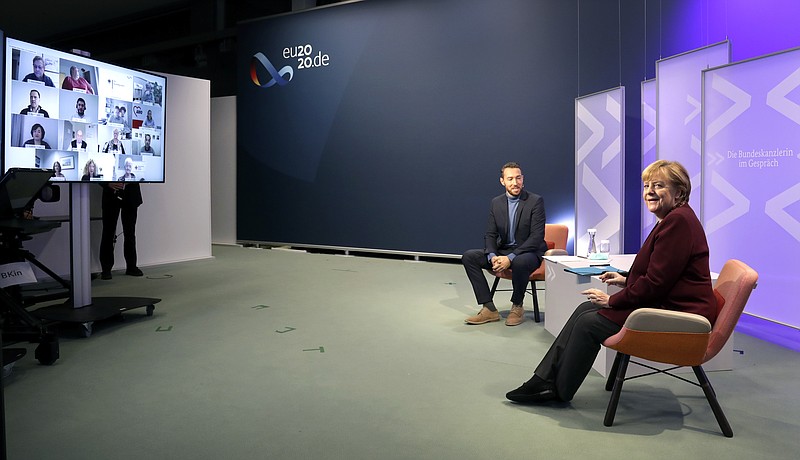BRUSSELS -- European Union leaders made no progress Thursday toward resolving a dispute to unlock a $2.1 trillion budget and pandemic recovery package that is held up by Poland's and Hungary's rejection of a linkage between rule of law standards and budget disbursements.
Instead, they were happy to hand the work over to veteran power broker Chancellor Angela Merkel of Germany and likely push it toward another summit next month, only weeks before the new seven-year budget is to come into force on Jan. 1.
Merkel said plenty of work was left to reconcile the veto-wielding recalcitrant couple with the rest of the bloc, which is eager to start spending its way out of the worst economic downturn in the bloc's history.
"We have a duty to try and find a way," Merkel said, but added that even though time was pressing, "we are still very much at the beginning."
During a 20-minute session at the start of their video summit, the leaders from the opposing sides stuck closely to their positions but did not acerbate the existing tensions.
European Council President Charles Michel, who chaired the meeting, acknowledged it will be a tall order to break the stalemate, adding he will join Merkel in looking for solutions with all the parties involved before next month's EU summit.
The deal for the budget and recovery fund looked well on track to enter into force in January -- until Hungary and Poland vetoed it this week. They objected to a new "rule-of-law mechanism" that would allow the bloc to deny funds to countries that violate democratic norms -- something that both Poland and Hungary have been accused of doing.
The dispute risks delaying the rollout of funds that are urgently needed to weather the economic impact of a new wave of coronavirus infections that risks pushing the region into another recession.
"It is in the interest of everyone that we move quickly on this. People's jobs depend on this," European Commission Vice President Frans Timmermans said. "Our economic recovery depends on this. All that is being asked of member states is to respect the treaties they have signed and ratified. That's it."
Poland and Hungary say they vetoed the budget for 2021-2027 and the aid plan because they think the "rule-of-law" mechanism will be used as an ideological weapon to punish them. Slovenian Prime Minister Janez Jansa is backing the two countries' objections.
If leaders fail to break the stalemate before the end of the year, the bloc will continue to spend but function on limited resources, with a maximum of one-twelfth of the budget for the previous financial year to be spent each month. Many projects for Poland and Hungary could be held up.
Information for this article was contributed by Frank Jordans and Vanessa Gera of The Associated Press.




